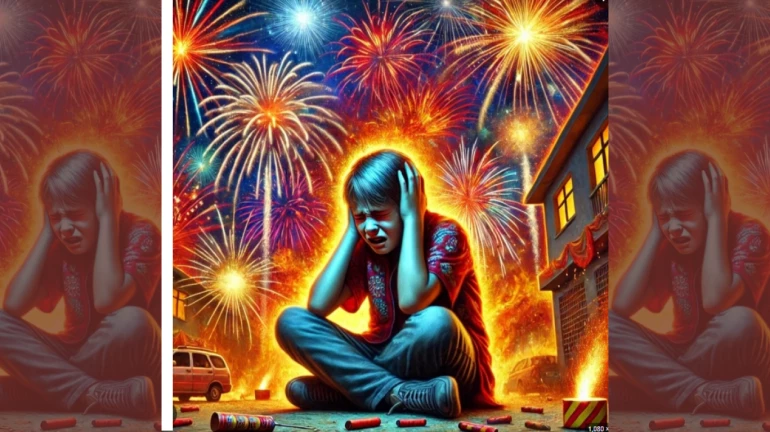
The festive sparkle of Diwali often comes with a hidden cost—noise overload. The constant bursts of crackers, traffic, and celebrations can leave many people feeling drained, anxious, or unable to focus. While the ears may recover in a day or two, the mind takes longer to find its calm again. According to Dr. Sonal Anand, Psychiatrist at Wockhardt Hospitals, Mira Road, it’s important to “detox the mind” after being exposed to excessive noise to restore mental balance and emotional well-being. Children, the elderly, and pets are especially vulnerable to the stress caused by Diwali noise. For young children, the sudden, unpredictable bursts of sound can trigger fear, headaches, and difficulty concentrating.
Noise and the Mind:
Dr. Sonal Anand Psychiatrist at Wockhardt Hospitals explains that noise pollution doesn’t just disturb hearing—it triggers the brain’s stress circuits. “ Noise pollution can manifest itself in many ways like talking, transportation, or construction. These different ways relate to different ranges of sound levels. Sound levels are measured in decibels, which can range from 0 to over 120. Sensory overload from noise, often called auditory sensitivity, can make it difficult to focus, lead to anxiety, and disrupt your daily life. Continuous loud sounds keep the body in a state of alert, raising stress hormones and preventing proper relaxation,” she says. Over time, this can lead to irritability, mood swings, poor concentration, and even sleep disturbances.
Post-Diwali Detox Tips:
To recover from noise exposure, Dr. Sonal Anand recommends scheduling short periods of silence throughout the day. Even ten minutes of quiet can help reset the brain’s stress response. Simple techniques like deep breathing, mindfulness, or meditation can calm the mind effectively. Spending time in green, peaceful environments—such as parks or gardens—also helps lower mental fatigue caused by sound overload. Limiting screen time and avoiding unnecessary background noise after Diwali can further accelerate recovery. Listening to soothing natural sounds such as rainfall, waves, or soft instrumental music promotes relaxation and balance.
Long-Term Protection:
Dr. Sonal Anand Experts at Wockhardt Hospitals, Mira Road, emphasize that protecting your mental space is just as important as protecting your hearing. Regular exercise, hydration, and restful sleep are essential for mental recovery. Creating a “quiet hour” each day—free from gadgets and urban noise—can make a lasting difference.
As city life grows louder, Dr. Sonal Anand urges people to treat mental detox as an essential self-care habit. “Peace of mind is not automatic—you have to make space for it,” she adds.





